Bandhu Gardens Cultivating Fruit, Vegetables and Friendship in Detroit
Among trees heavy with apples and plums and countless tomato and squash plants, the women and children behind Bandhu Gardens talk about the role of gardening in community.
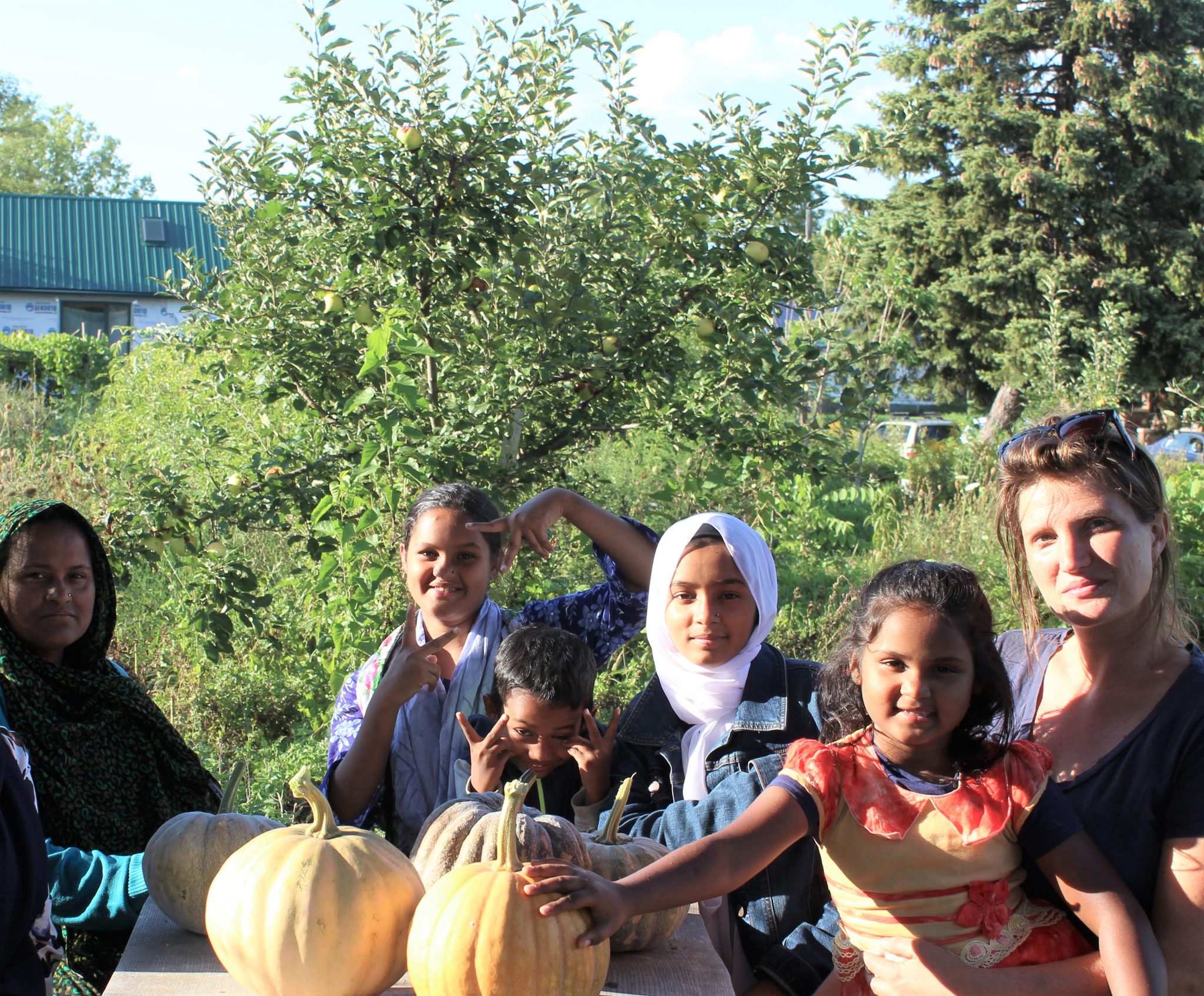
Rooted shares stories about land tending, community healing and regeneration happening right here on the ancestral land of the Indigenous Anishinaabe, the area commonly referred to as Detroit.
Minara Begum, her daughters Fatima, 12, Moriym, 14, and their neighbor and business partner Emily Staugaitis are the women behind Bandhu Gardens. Bandhu amplifies and recognizes the talents of Bangladeshi women living in Detroit by offering catering, pop-up events, cooking classes and selling the fruits and vegetables they grow.
At the site of their sprawling urban garden on Maine Street, just a few blocks from where they live, Fatima, who was just 6 years old when Bandhu Gardens first started in 2015, explains the meaning of the Bangla word, “Bandhu.” “Bandhu means friend,” says Fatima, who says that this place is literally rooted in friendship in a variety of ways. “We started to feed people and … show how we could cook … we started to make food … and then we started to serve it to the people and they started to like it,” she says.
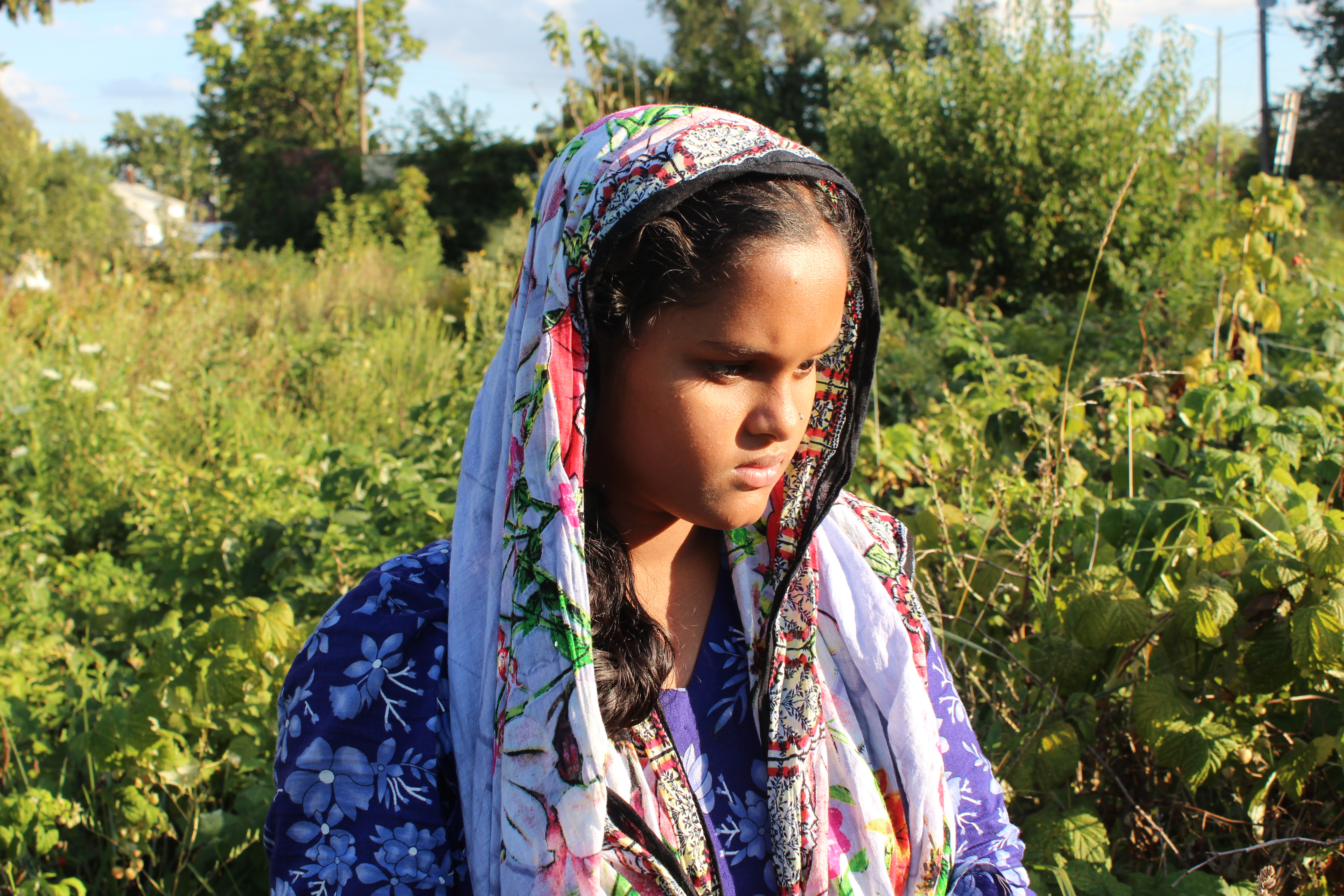
The lush garden on Maine Street is a larger version of the backyard garden at the Begum home. Here at the big garden, which takes up several city lots, there are several varieties of squash, along with beans, tomatoes, red and golden raspberries, plums, apples and more. In some ways the annuals represent Begum’s culinary and gardening background while the perennials illustrate where Staugaitis comes from. Staugaitis grew up in a farmhouse in upstate New York surrounded by perennial fruit trees of all kinds. On the abundance of fruit trees, Staugaitis says they were there “from prior generations. And so in knowing that all the Bengali neighbors were growing all of these annuals, it was important to me to grow perennials, which take up a lot of space … and that’s been a big lesson for me … having to care for something that takes up space, but it’s not always productive,” says Staugaitis.
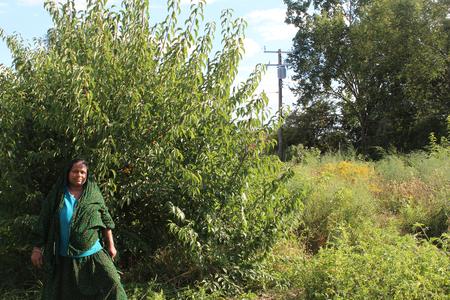
In recalling how this community first began to take shape, Minara Begum says (through a translator, WDET reporter and producer Nargis Rahman) she met Staugaitis largely because of proximity. They were neighbors and Begum was pregnant and new to America. Begum remembers not knowing what to do at that time and Staugaitis reached out to offer a helping hand and from there, a friendship and business blossomed.
Begum says some of the first foods she shared with Staugaitis include Lal Shak Bhaja, a variety of red spinach popular in backyard gardens in the Bangladeshi community, along with mustard greens, chicken curry and goat curry.
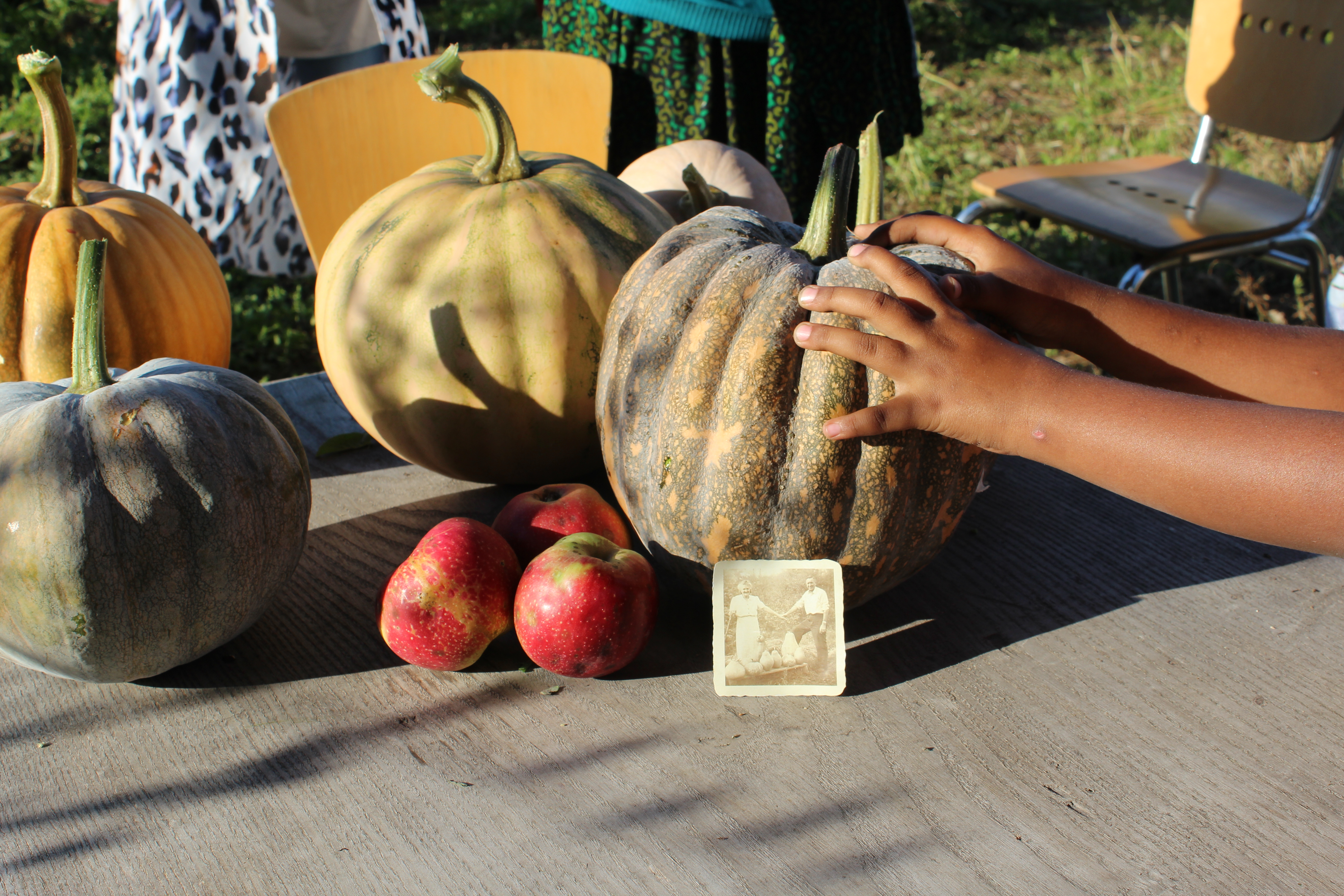
As Bangladeshi culture generally places women in the background or on the sidelines when it comes to business and work, Bandhu Gardens represents a kind of liberation for Begum, who works every day to balance her roles as a Bangladeshi American mom and someone involved in the business of food. When talking about how she gets her family engaged in the garden, Begum puts everyone to work, tossing them into the garden and getting them all involved, she says with a laugh.
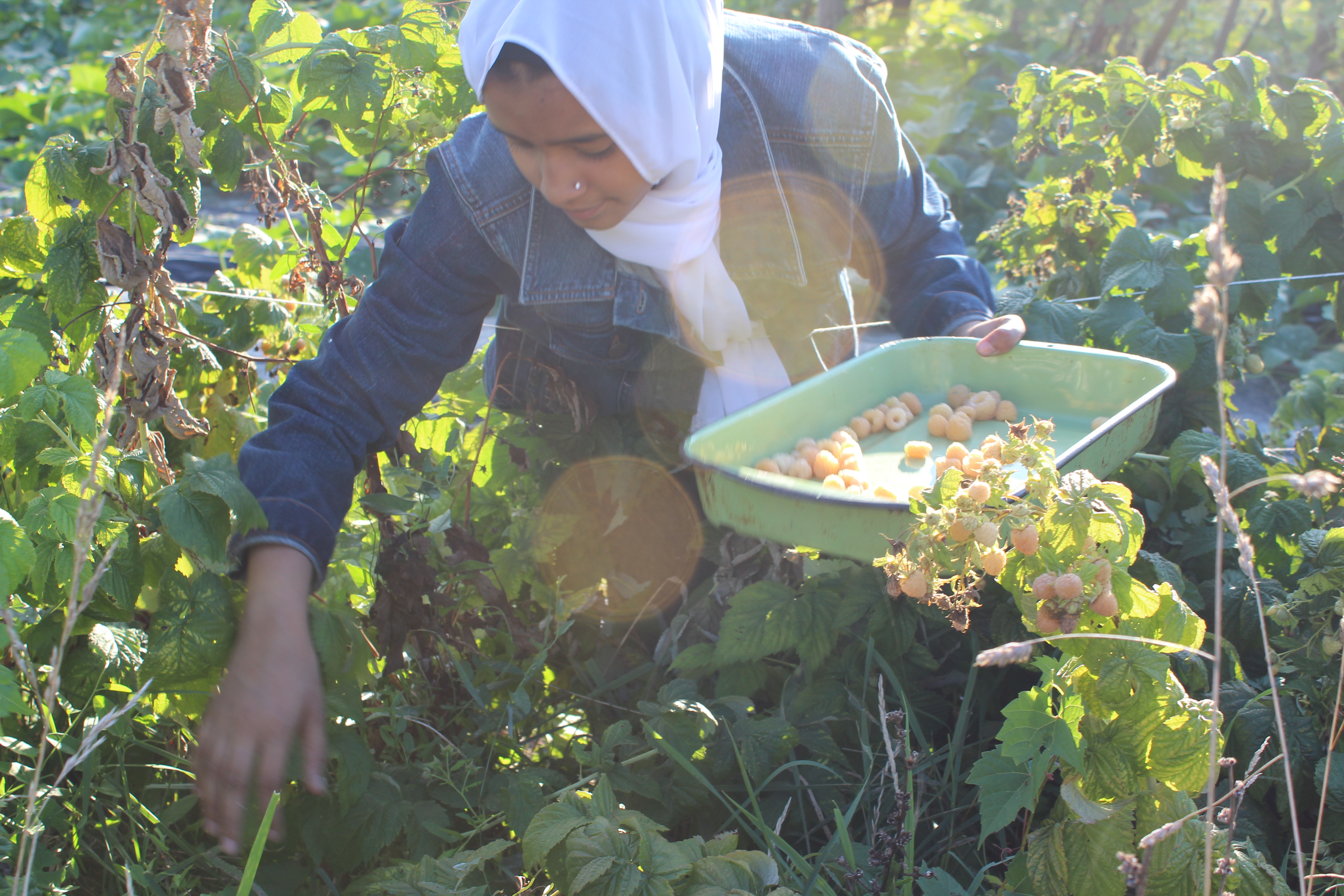
Moriym, Minara’s eldest daughter, says there’s so much more to Bandhu than just growing food. She’s played a big role behind the scenes, like translating for her parents and family members for medical and financial needs that require her to navigate bureaucratic processes that are typically daunting for people much older than she. Even in the early days of Bandhu, Moriym remembers her mom speaking Bangla while Staugaitis was speaking English and they needed translation help, which young Moriym was able to provide.
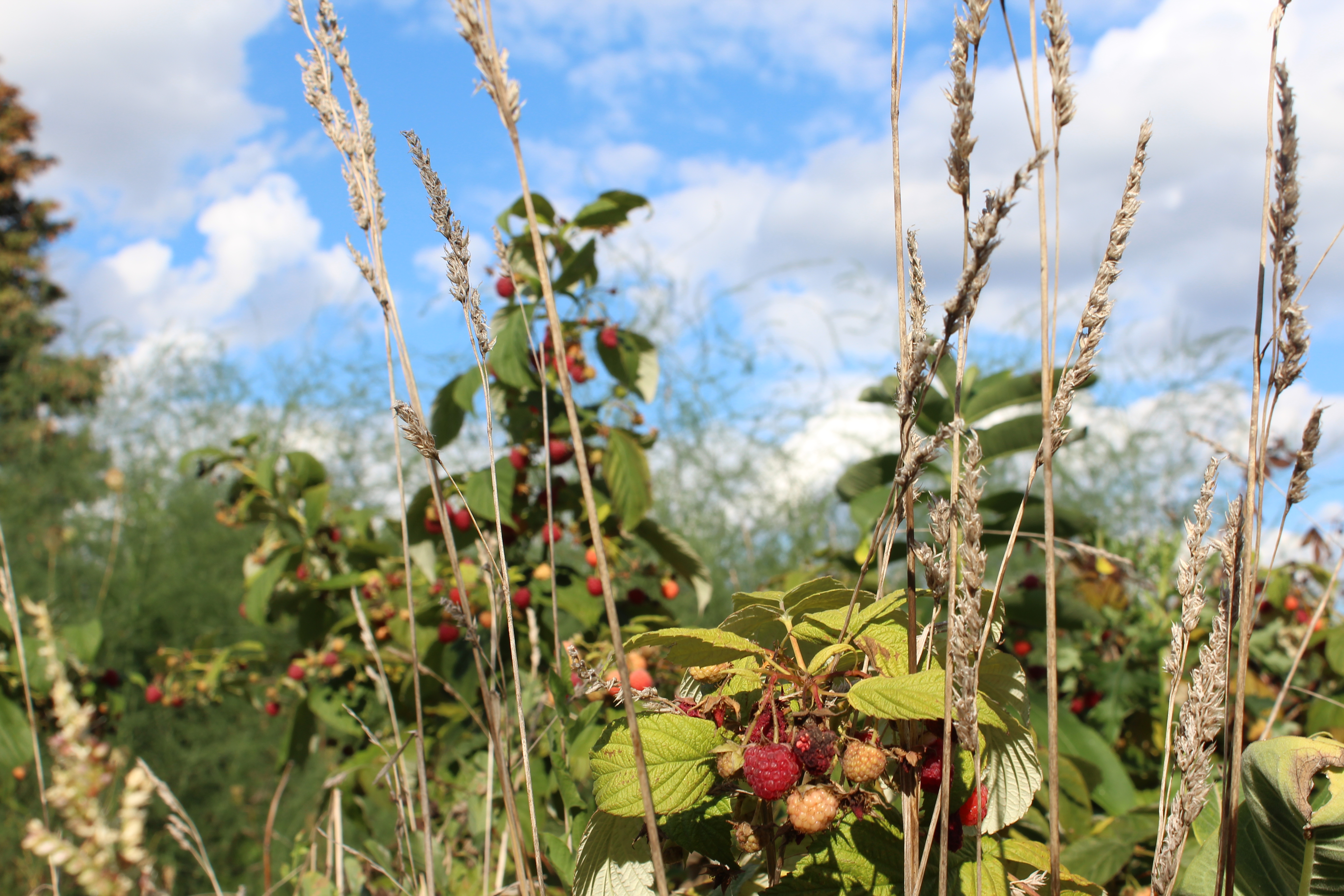
On the table at the center of the large urban garden, among several ripe apples and large squash, sits a photo of Staugaitis’ great-grandparents posing alongside squash nearly identical to the ones sitting on the table at Bandhu. The cyclical nature of this moment isn’t lost on Staugaitis, who explains that her great-grandparents came to the U.S. from France and Italy in the early 1900s. “When I showed [this photo to] Minara, she said, ‘those are my squash!'” Staugatis says, “from a different time, from a different place, but seeds that they had brought with them and kind of cultural practices that they brought with them and maintained but then weren’t passed down to me. My grandmother didn’t learn them. So my father didn’t learn them. So I didn’t learn them, which is so different than all the kids being put to work, you know, and, and so they’ve had the opportunity to learn directly from this line of active gardeners. So there’s this really interesting cycle of kind of immigration and assimilation and learning, and then a new cycle overlapping and now I’m relearning from Minara in this different way. And so squash has been kind of one of our teachers the whole time.”
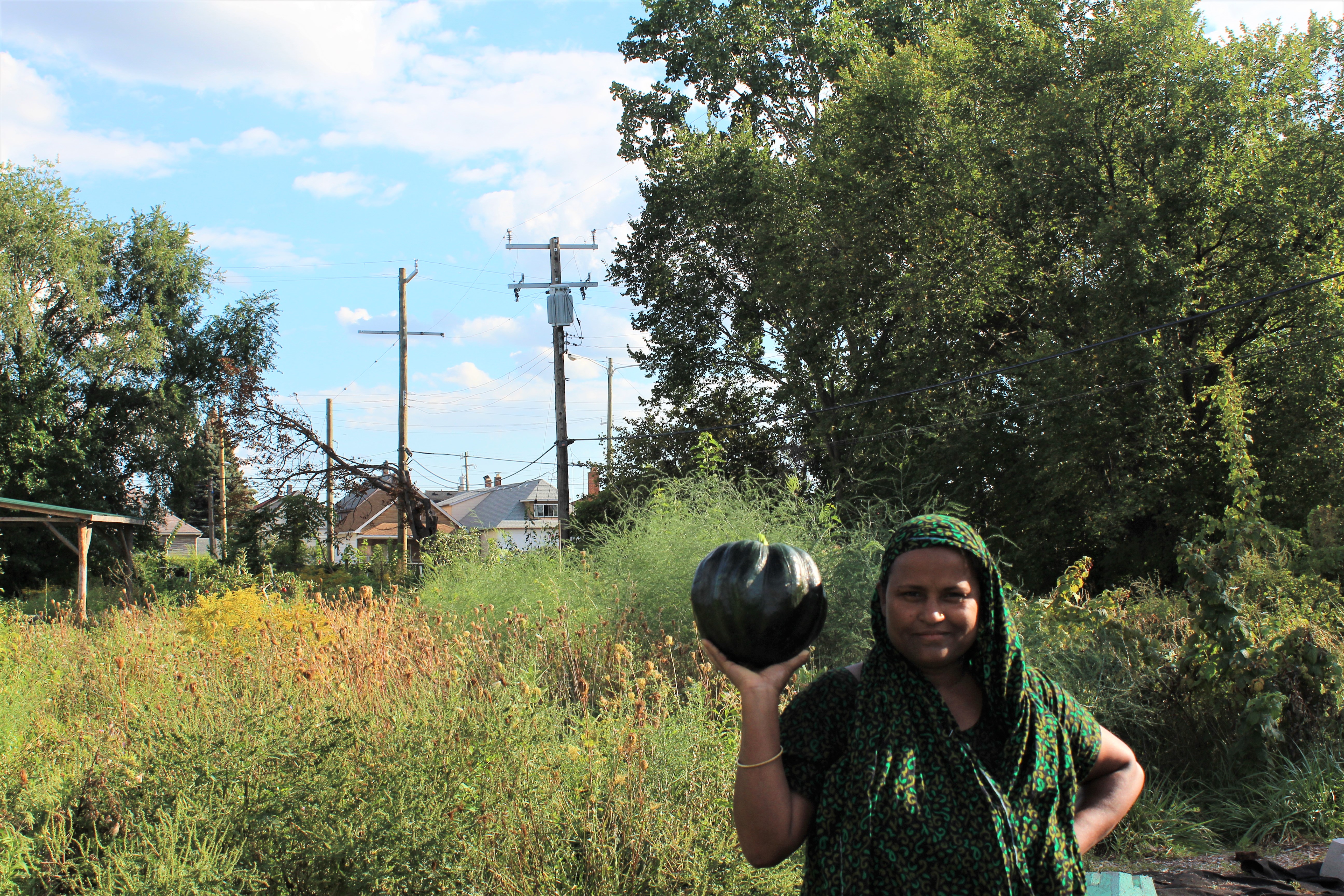
In the future, Begum says she hopes Bandhu Gardens will continue to host more parties and pop-up events.
Listen: How Bandhu Gardens grows community in Detroit.
Get involved in supporting housing repairs for and by long-term residents of East Davison Village and follow Bandhu Gardens on IG
A bit of context about the crowdfunding campaign for East Davison Village housing repairs, Roots and Routes: Some people are rooted where they were born, others travel winding routes before sending down roots. Minara and Emily, of Bandhu Gardens, are not originally from Detroit and acknowledge that the land we grow on and the homes that we live in all went through the foreclosure process and seizure by the county, which displaced many deep-rooted families. The absence of houses is what makes such a large garden plot possible. This fundraiser is in solidarity with our neighbors to support the renovation and repair of their homes, which have been impacted by decades of city disinvestment.
Trusted, accurate, up-to-date.
WDET strives to make our journalism accessible to everyone. As a public media institution, we maintain our journalistic integrity through independent support from readers like you. If you value WDET as your source of news, music and conversation, please make a gift today.

